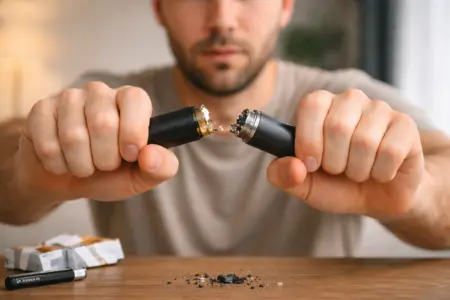What is Compulsive Hoarding?
Compulsive Hoarding is a behaviour in which an individual loses their ability to control their desire or feeling of need to accumulate quantities of things over the amount they can reasonably use.
This accumulation results in difficulty functioning in daily activities, and the items being hoarded appear of little or no value to outside observers. Hoarding behaviour can be focused on anything; however, some common focuses of hoarding include food, animals, and paper.

Download Our Brochure
An important difference between hoarding and collecting is that in hoarding, the individual does not have any desire to display or show off the hoarded items, and they frequently are in such disarray that presentation would not even be feasible.
Signs and Symptoms of Compulsive Hoarding include:
- Accumulating an amount of something that causes functional impairments in the person’s daily life
- They seem unconcerned despite negative consequences that seem obvious to others
- A deep emotional attachment to accumulated items that may seem unreasonable to others
- An insatiable desire to accumulate more items despite having no room or apparent reason to do so
- Social isolation due to guilt, shame, and embarrassment about the condition of their home due to the accumulation of items;
- Mood disorders such as depression and anxiety
- Difficulty with or inability to get rid of the items
- Social, legal, health, and other negative consequences due to the behaviour

Step into a Brighter Future
Compulsive Hoarding and Drug and Alcohol Addiction
Hoarding behaviours are understood primarily as fundamentally anxiety-related, specifically O.C.D.
Many individuals who suffer from compulsive hoarding fear the responses of their friends and family in regard to their behavior and go to great lengths to hide it.
Often, the primary feelings that drive hoarding behaviors (anxiety, depression, etc.), as well as the secondary feelings (isolation, loneliness, guilt, shame, embarrassment), combine to make it very difficult for affected individuals to seek help, and they may use drugs and alcohol to self-medicate.
Drug and alcohol use related to hoarding behaviors can successfully be treated with compassionate, holistic care including targeted therapies that address the underlying issues, and the hoarding behaviors, and develop new coping skills for sustained recovery.
As a trusted partner of Castle Craig, one of the UK’s leading residential addiction treatment centers, CATCH Recovery offers a seamless continuum of care for patients transitioning from residential treatment to outpatient care. This ensures that patients receive the best possible support and care throughout their recovery journey.
Experts You Can Trust
With a wealth of knowledge and services to help you regain control of your life, request a call-back from one of our professionals today. The choice you make today could change your life forever.


